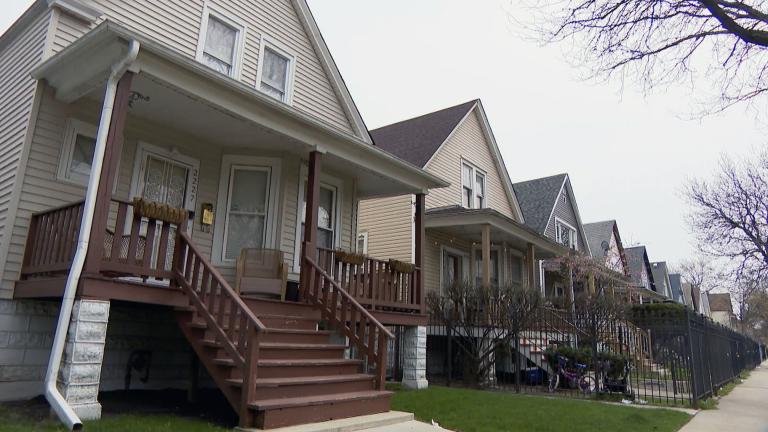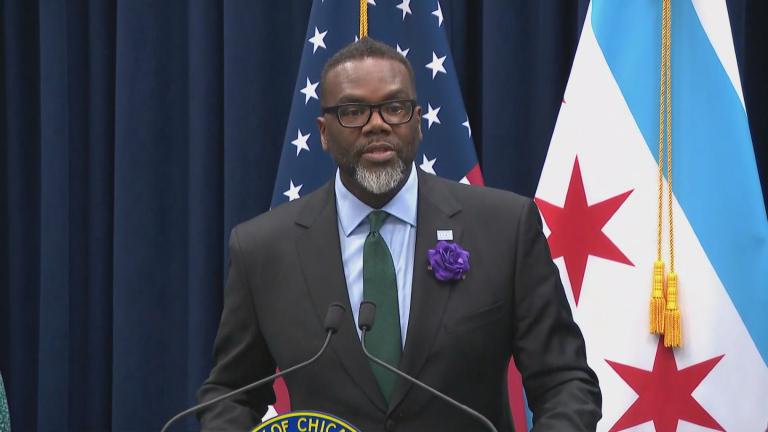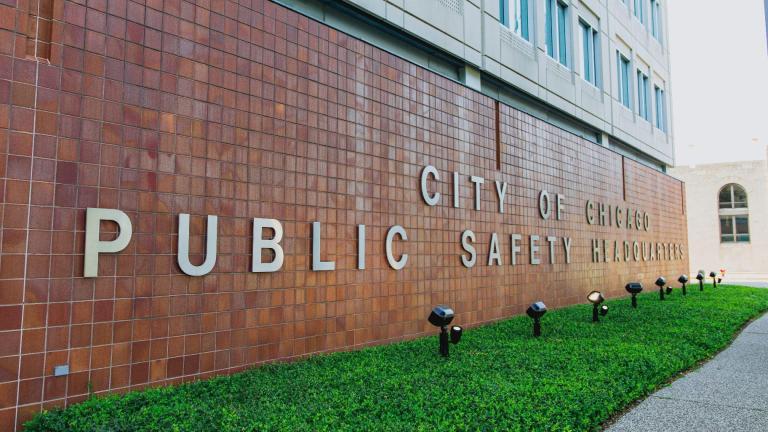 (Jürgen Polle / Pixabay)
(Jürgen Polle / Pixabay)
Chicago’s top financial officials defended Mayor Lori Lightfoot’s plan to take $242 million from the city’s surprise surplus and use it to pay down the a massive pension debt to skeptical members of the Chicago City Council.
If approved as part of the city’s 2023 spending plan, the additional payment to the city’s four pension funds would represent the first time Chicago officials have paid more than required.
Lightfoot’s proposal shocked most of the members of the Chicago City Council, with even Budget Committee Chair Ald. Pat Dowell (3rd Ward) telling reporters she did not anticipate such an announcement. Chicago’s financial picture has been buoyed by the city’s red-hot real estate market and nearly $2 billion in federal aid designed to help the city withstand the ravages of the pandemic.
The details of the “advanced pension payment” proposal appear to have been in flux until the last minute on Monday — with the first version of the news release detailing the mayor’s 2023 budget proposal saying the payment would be $202 million.
Chief Financial Officer Jennie Huang Bennett faced pointed questions from members of the City Council’s Budget and Government Operations Committee on Thursday about the proposal.
Several alderpeople — all of whom must face voters in less than five months — asked why that money wouldn’t better be used to strengthen the city’s social safety net or provide direct services to residents still struggling to recover from the COVID-19 pandemic.
Huang Bennett said the city must begin “paying down” the city’s high-interest pension credit card.
“Paying down our pension credit card will save nearly $2 billion in future pension costs and prevent significant investment losses in the pension funds,” Huang Bennett said.
The extra payment “stabilize” the city’s net pension liability and save $2 billion in “future pension costs,” Huang Bennett said.
The infusion of cash will help the city weather the recent drop in the stock market, which caused the city’s pension accounts drop by 12% by the end of August, with additional losses expected, Huang Bennett said.
Without the additional $242 million pension payment, the funds would be forced to sell investments to cover payments to retired employees, costing the city an additional $130 million annually, Huang Bennett said.
The additional pension payment is also the minimum amount Chicago finance officials believed could convince Wall Street ratings agencies to raise the city’s credit rating, making it less expensive for the city to borrow money, Huang Bennett said.
Before the pandemic, Chicago finance officials projected that the city would eliminate its longstanding imbalance between revenues and expenditures and reach structural balance in 2023.
If the ratings agencies agree the Lightfoot administration has reached that financial milestone, the city will see $100 million per year in reduced debt costs — and those funds could be used to provide direct services to Chicagoans in future years, Huang Bennett said.
Even under the rosy budget outlook shared with City Council members on Thursday, the city’s finances will continue to be pinched by soaring pension payments, as the city complies with a state law that requires Chicago’s four funds be funded at a 90% level by 2055, ensuring they can pay benefits to employees as they retire.
In 2023, Chicago will pay more than $2.34 billion to its pension funds — more than an additional $1 billion directly from the city taxpayers than it paid just three years earlier.
The city’s 2023 pension bill is $92.3 million more than Chicago’s 2022 pension bill. That might seem like a significant increase — but it is dwarfed by the nearly $461 million that the city’s pension bill jumped between 2021 and 2022, the final year for the state law to take full effect.
That is an indication that Chicago has begun to get its arms around its pension debt and will not have to cope with massive increases in its pension bills, Huang Bennett told WTTW News in August.
Despite that, the city’s pensions will remain a major expense for its corporate fund, which officials use to pay for discretionary expenses. That $478.5 million bill — up $149.3 million from 2021 — will be covered in part by the $40 million from Bally’s in return for the City Council’s approval of their plan to build a casino and resort in River North the green light and a temporary casino set to open at the Medinah Temple next summer.
In all, Chicago owes $33.7 billion to its four employee pension funds representing police officers, firefighters, municipal employees and laborers, according to the 2021 Annual Comprehensive Financial Report.
That is an increase of 2.2% from 2020, the smallest jump in three years, according to the report.
Lightfoot has said she was particularly proud that 2021 was the first year that the assets of all four of the city’s pension funds grew in approximately 25 years.
But all four funds remain significantly underfunded, according to the city’s annual financial report for 2021.
The firefighters’ fund has the lowest funded level of the four, at 21%; the laborers’ fund has the highest funded level, at 46%, according to the city’s annual financial report.
Contact Heather Cherone: @HeatherCherone | (773) 569-1863 | [email protected]







